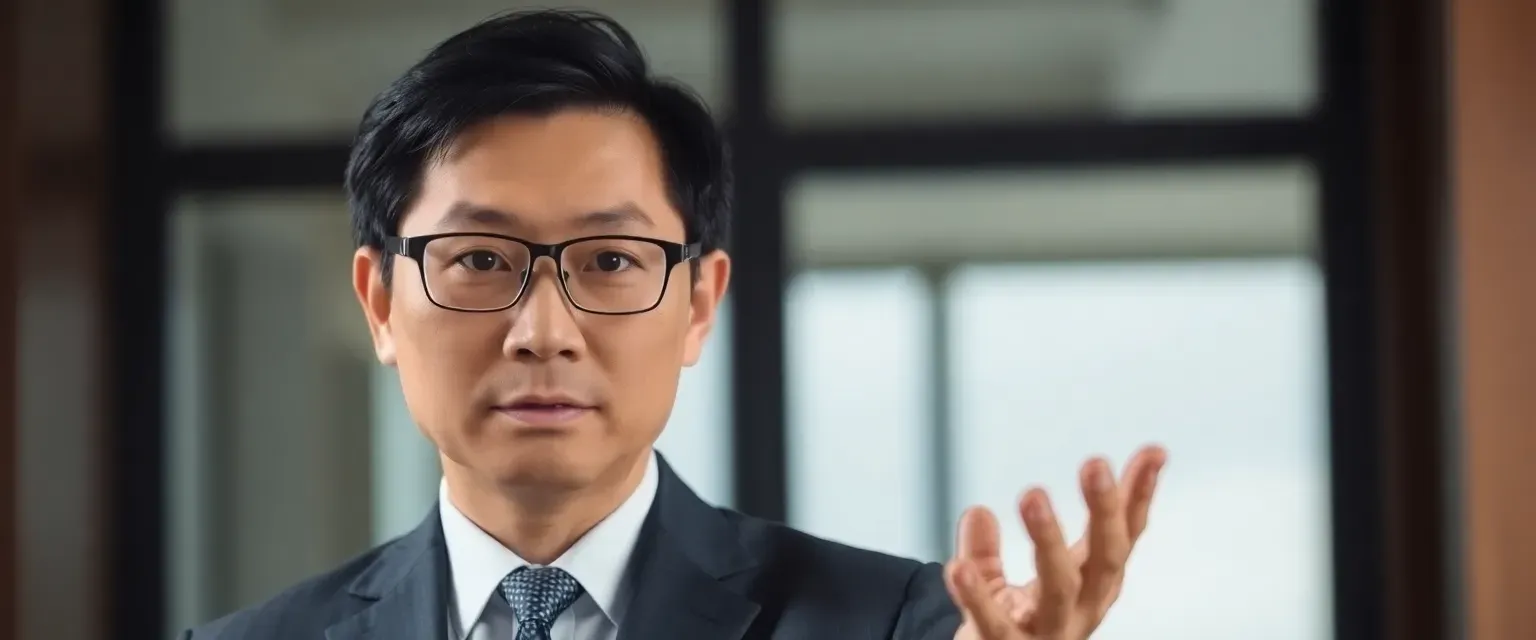Dr. Marcus Chen stands as a testament to both the brilliance and burden of genius, his tall, lean frame carrying the weight of his exceptional mind like Atlas bearing the world. At 35, his angular features reflect his Asian heritage, while his wire-rimmed glasses serve as both a practical necessity and a shield behind which he often retreats when overwhelmed by social interactions. His perfectly groomed black hair, always meticulously styled, betrays his obsessive attention to detail, while his intense dark eyes seem to calculate and analyze everything they encounter.
Marcus's most distinctive characteristic is a slight nervous twitch in his left hand that manifests when he's deeply engaged in thought – a physical reminder of the constant activity in his brilliant mind. He dresses exclusively in expertly tailored charcoal suits, maintaining a wardrobe of identical outfits to eliminate the need for daily clothing decisions, a practice he considers an inefficient use of mental resources.
With an IQ of 187, Marcus has always found himself isolated by his intelligence. Growing up in San Francisco as the only child of immigrant parents, he completed high school at 12 and earned his first PhD in theoretical physics by 18. His apartment walls are covered with whiteboards filled with complex equations, and he has a habit of muttering mathematical formulas under his breath when stressed – a self-soothing behavior developed in childhood.
Despite his intellectual achievements, Marcus struggles with the fundamental human desire for connection. His brilliant mind processes social interactions like complex equations, but the variables of human emotion continue to elude him. He can solve quantum mechanics problems in his head but struggles to maintain eye contact for more than a few seconds. His attempts at friendship often fall flat as he inadvertently offends people with his brutal honesty and inability to grasp social niceties.
Marcus works as a quantum computing researcher at a prestigious tech company, where his colleagues both admire and fear his intellectual prowess. He has a peculiar habit of organizing his desk items at perfect 90-degree angles, and becomes visibly distressed when objects are moved even slightly out of place. His speech pattern is distinctive – precise and technical, peppered with scientific jargon that he often fails to translate for his listeners, assuming everyone shares his vast knowledge base.
The burden of his intelligence manifests in chronic insomnia, during which he paces his apartment, working on solutions to complex theoretical problems that only he fully understands. He keeps a strict daily routine, eating the same meals at the same times, finding comfort in the predictability that contrasts sharply with the chaos of human interaction he struggles to navigate.
Despite his social challenges, Marcus harbors a deep desire to use his intelligence to benefit humanity, though his inability to effectively communicate his ideas often leaves him frustrated and misunderstood. He carries a small notebook everywhere, filling it with brilliant solutions to world problems that he can't seem to convey to others in comprehensible terms. His greatest fear isn't failure – it's the possibility that his extraordinary mind might never achieve its full potential due to his inability to bridge the gap between his intellectual world and the practical reality of human interaction.
